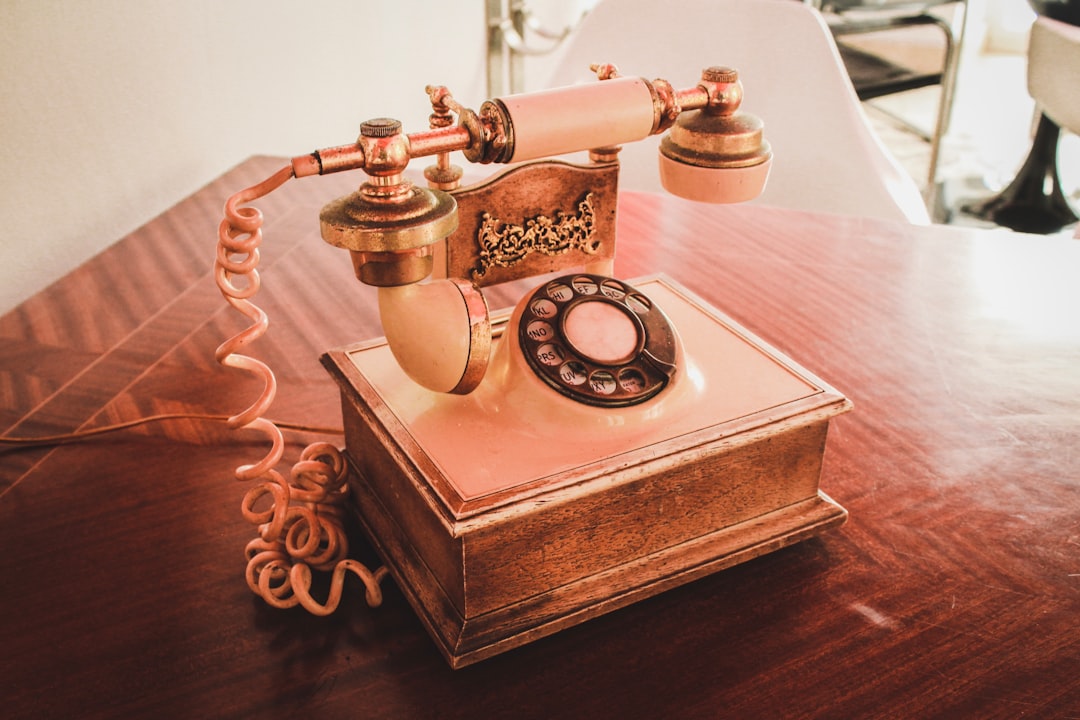In Maine, the Telephone Consumer Protection Act (TCPA) protects residents from unwanted telephone solicitations and robocalls. If you've received nuisance calls or text messages from automated systems without consent, you may have legal recourse. Individuals can sue for damages, including treble damages, under the TCPA. Specialized lawyers in Maine assist with robocall cases, helping clients understand their rights, file complaints, and recover monetary damages. To take action, evidence of unsolicited calls originating from automated dialing equipment (ADRs) or prerecorded messages must be proven, causing harm such as emotional distress or invasion of privacy. Prompt consultation with a robocall law firm or attorney is recommended due to strict time limits for TCPA lawsuits.
In Maine, the Telephone Consumer Protection Act (TCPA) safeguards residents from unwanted robocalls. If you’re facing persistent or malicious automated calls, understanding your rights is crucial. This article guides you through navigating the TCPA in Maine, including when and how to sue for robocalls. We explore legal criteria, the role of a lawyer, choosing the right firm, building a strong case, common defenses, and post-suit proceedings. If you’re wondering, “Can I sue for robocalls with a lawyer in Maine?” this comprehensive guide offers insights and strategies tailored to protect your rights.
- Understanding the Telephone Consumer Protection Act (TCPA) in Maine
- Your Rights as a Maine Resident Against Robocalls
- When Can You Sue for Robocalls? Legal Criteria Explained
- The Role of a Lawyer in TCPA Litigation in Maine
- Choosing the Right Robocall Law Firm or Attorney in Maine
- Building a Strong Case: Evidence and Documentation for Robocall Lawsuits
- Common Defenses Against Robocall Lawsuit Claims in Maine
- How to Proceed After Filing a Lawsuit for Robocalls in Maine
Understanding the Telephone Consumer Protection Act (TCPA) in Maine
In Maine, the Telephone Consumer Protection Act (TCPA) is a federal law designed to protect consumers from unwanted telephone solicitations and robocalls. This legislation grants individuals the right to sue for damages if they have experienced nuisance calls or text messages from automated systems without prior consent. The TCPA prohibits companies and organizations from using automatic dialing equipment (ADRs) or prerecorded messages to contact phone numbers listed on the National Do Not Call Registry or those who have explicitly opted-out of receiving such communications.
If you believe you’ve been a victim of robocalls in Maine, understanding your rights under the TCPA is essential. A lawyer specializing in TCPA cases can help determine if you have a valid claim and guide you through the legal process to seek compensation for any harassment or inconvenience caused by unwanted calls. Contacting a robocall law firm or attorney in Maine who handles these matters can provide valuable assistance in navigating your rights and options, including potential lawsuits against the offending parties under the TCPA.
Your Rights as a Maine Resident Against Robocalls
As a Maine resident, you’re protected by the Telephone Consumer Protection Act (TCPA), which gives you powerful rights against unwanted robocalls. If you’ve been bombarded with automated calls from telemarketers or debt collectors, know that there are legal avenues to take. You can sue for damages and even seek treble damages, meaning three times your actual harm, if the call violated your TCPA rights.
Maine residents have a right to refuse calls from robocalls and to live free from persistent unwanted advertising. If you’ve tried blocking numbers or asking callers to stop but continue to receive them, it’s time to consult with an experienced lawyer. A robocall law firm or attorney specializing in Maine consumer protection law can help you understand your legal options, file a complaint, and potentially recover monetary damages for the nuisance and invasion of privacy caused by these calls.
When Can You Sue for Robocalls? Legal Criteria Explained
If you’ve been plagued by unwanted and incessant robocalls, you may be wondering if you have any legal recourse. In Maine, as in many states across the country, consumers are protected by the Telephone Consumer Protection Act (TCPA), a federal law designed to curb intrusive telemarketing practices. One of its key provisions allows individuals to take legal action against companies or entities that make robocalls without prior consent.
To sue for robocalls, you must meet specific legal criteria. First, the calls must be considered “unsolicited,” meaning they were not invited or consented to by the recipient. Second, the caller’s identification information must be displayed on your phone, indicating it is from an automated dialing system (ATS). If these conditions are met and the calls cause you harm, such as emotional distress or invasion of privacy, you may have a valid case. Consulting with a robocall lawyer Maine or a reputable robocall law firm Maine specializing in TCPA cases can help determine if legal action is warranted and guide you through the process.
The Role of a Lawyer in TCPA Litigation in Maine
If you’ve been receiving unwanted robocalls in Maine, you may wonder if there’s anything you can do. The Telephone Consumer Protection Act (TCPA) offers robust protections against such calls, and one of the most effective ways to enforce your rights is through legal action. A lawyer specializing in TCPA litigation can play a crucial role in navigating this complex area of law.
In Maine, if you believe your phone has been targeted by robocallers in violation of the TCPA, an experienced attorney can help you determine if you have a valid case. They will assess the specific circumstances of your situation, review call records, and guide you through the process of taking legal action against the perpetrators. A robocall law firm or lawyer in Maine can file a lawsuit on your behalf, seek damages for each violation, and potentially put an end to these unwanted calls.
Choosing the Right Robocall Law Firm or Attorney in Maine
Building a Strong Case: Evidence and Documentation for Robocall Lawsuits
Common Defenses Against Robocall Lawsuit Claims in Maine
How to Proceed After Filing a Lawsuit for Robocalls in Maine
After filing a lawsuit for robocalls in Maine, it’s crucial to understand the next steps. The first action is to gather and preserve all relevant evidence, including recordings of the offending calls, any written communication, and details about the caller’s identity. This documentation will be essential in building your case. Next, you’ll need to work closely with your chosen lawyer or attorney from a reputable robocall law firm in Maine. They will guide you through the legal process, which may involve negotiations with the defendant to resolve the issue out of court or preparing for a trial if necessary.
Your lawyer will help ensure that your rights under the Telephone Consumer Protection Act (TCPA) are protected. This federal law prohibits unsolicited telephone marketing calls, including robocalls, and provides substantial monetary damages to consumers who have been harmed by such calls. It’s important to act promptly as there are strict time limits for filing lawsuits related to TCPA violations.






